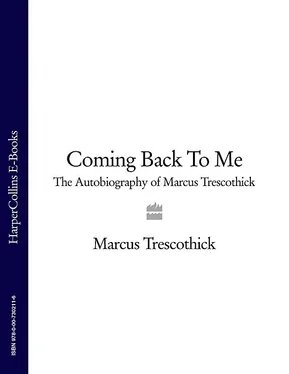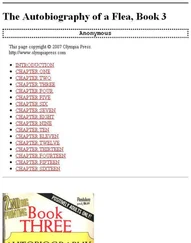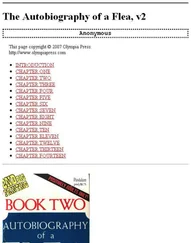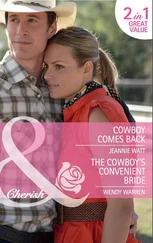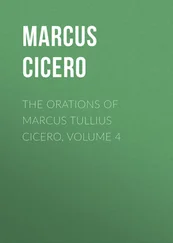But an article in the local paper, recording the birth of Marcus Edward Trescothick at 9.15 a.m. on 25 December 1975, weighing a ‘healthy’ 9lb 4 oz, said it all. Under the headline ‘On The Team For 1991?’, it read:
The couple, who live at Glenwood Drive, Oldland Common, already have a three - year - old daughter Anna, aged three .
Said Martyn: ‘I was secretly hoping for a boy, and he will have every encouragement to become a cricketer when he grows up .’
While that first paragraph was apparently put together by someone who had necked a glass too many of the Christmas spirit, the second one was spot on.
Mum tells me I had a little plastic bat thrust into my hands at 11 months old, only a couple of weeks after I started walking, and, from that moment, I went round hitting everything I could find. If there weren’t any balls to whack I’d have a go at those square wooden alphabet bricks, an early indication of my preference for sport over academic life. When I was about two, a family friend called Roger Loader cut a small bat down to a blade of around six inches and gave it to me as a present. It had a bit more go in it than the plastic one and, by all accounts, I was absolutely lethal with it. When mum and I returned after dropping off Anna at school, we’d get back in the house and I’d plead ‘bowl to me, mum, bowl to me’. In the kitchen, in the living room, in the garden, wherever she happened to be, I’d hand the ball to her, she’d bowl it, I’d hit it, fetch it, carry it back to her and say again: ‘bowl to me, bowl to me.’ I never got tired of this. How she didn’t I’ll never know. No wonder, whenever they heard me coming, our pet cats, Cricket and Biscuit , would run for their nine lives. Anna thought I was just plain daft.
When I was four, dad went on a cricket tour to Sussex and came back with my first very own new bat, a Gray-Nicholls Powerspot which I still have at home to this day, and it was carnage. In the living room there were three sets of wall lights, each with two lamps under their own shades. By the time I had finished, of the six lamps and shades only one remained intact. I’d had all the rest. And one day, I managed to put a bouncy rubber ball straight through one of the French doors, clean as a whistle. Mum and dad never seemed to mind too much. In fact I was more likely to get told off for not hitting the ball hard enough than for the latest breakage.
From as young as I can remember, if I wasn’t tugging at mum’s skirts pleading with her to ‘bowl to me’ or outside in the garden with dad, playing cricket, and by now, football as well, I was glued to the television whenever the cricket was on, so much so that mum would often find me standing in front of it, bat in hand, repeating the shots I’d just seen. She is convinced that is how I became a left-handed batsman even though I am naturally right handed. In those days, the late 70s and early 80s, the England side was dominated by right-handed batters like Graham Gooch, Geoff Boycott, Chris Tavare, Peter Willey and Ian Botham. David Gower was about the only one who batted the other way round. So, in mirroring the right-handers I was actually adopting a left-hander’s stance and practising the shots left-handed. The shots played by Gooch and Beefy obviously appealed to me more than the ones played by Boycott and Tavare.
Inevitably there were scrapes. I’ve still got a y-shaped scar on a my left hand from when I tripped on the doorstep bringing in the milk and I very nearly became living proof of the warning passed down by parents to kids from the beginning of time: ‘It’s all good fun until somebody loses an eye’. I had my luckiest escape thus far when I tried to climb up the washing machine, planted both Wellington-booted feet through the open door, slipped sideways, and the door hinge made a deep cut along my eyebrow.
By the age of six, whenever people asked me what I was going to do when I grew up, I didn’t just say ‘play cricket’, I said ‘play cricket, of course.’ At seven, with dad running the junior section at Keynsham, I was already playing for the club’s Under-11s.
At St Anne’s Primary School, I was extremely lucky that one of the teachers, a Rick McCoy, was sports-mad. He ran the cricket in summer and the football in winter, and by then I was even branching out into other sports. Aged nine, at the 1984 Warmley & District Schools Athletic Association Annual Sports Day, for instance, I was good enough to win bronze in the Ist Year Boys’ Sack Race and, a year later, in 1985, I took the gold, with the theme to Chariots of Fire playing softly inside my head.
Football was great fun. I was always a Bristol City nutter and it was pure joy when, after the Ashes of 2005, the club made me an honorary vice-president. I played alongside a lot of good mates for the St Anne’s side: it was me in goal (a formidable barrier even then), Eddie Gregg in midfield, Lee Cole a striker and his brother Mark, a chunky, slow right-back. Lee and Mark’s dad was a printer who worked from home and we used to get together to compile a programme for every match we played, price 5p, with the proceeds going to various charities, including Dr Barnados and Cancer & Leukaemia in Children, something we would all have cause to remember years later, around the time I was starting out on my senior England career.
There must have been a few watching because one week we raised £7. Each programme comprised eight pages of articles – Manager’s Message by Rick McCoy, Captain’s Corner, by Matthew Bliss, reports of previous matches and stats – results, scorers, today’s teams and goalscorers and appearances, and two special features called Player Analysis and Player Profile. The issue for our match against Bridge Farm on Thursday, 28 November 1985 (kickoff 3 p.m.) is a real collector’s item, as I am the Player in question.
In Player Analysis, Lee Cole writes: ‘Marcus Trescothick is a very good goalkeeper and has proved to be the best St. Anne’s have ever had.’ Lee was known to be an excellent judge.
In Player Profile it was my turn:
Full Name: Marcus Edward Trescothick Birth date: 25 December 1975 Favourite Food: Bread and chips Nickname: Tres Worst Food: Meat Most Embarrassing Moment: Letting in eight goals Favourite Moment: Saving a penalty Superstitions: None Ambition: To score a goal from a goal-kick .
I never was too sure about that rule.
In 1986, aged ten, I was first picked to play cricket for the county, Avon Schools, and had a reasonable start, top scoring with 75, and later St Anne’s made it through to the regional final of the English Schools Football Association six-a-sides. Though we failed to progress to the final at Wembley, I did find time to practise my autograph all over the page in the commemorative magazine set aside for getting other people’s.
Then, in 1987, three things happened that turned out to have somewhat more bearing on my later life.
First, on Sunday 21 June, aged 11, I scored the first-ever century for Avon Schools Under-11s, 124 against Devon at Exeter School. Two weeks later, against Worcestershire at the Bristol Grammar School ground at Failand, I scored 183 not out. When asked why he declared, the manager, Mike Docherty, apparently said: ‘If I let him get a double-hundred at his age, what else would he have to aim for?’ The innings caused quite a stir. The local BBC TV asked if they could come along and film the next match, but we weren’t comfortable with that. But the Bristol Evening Post decided to scrap their weekly Top Man cricket award and nominated me as Top Kid instead. Nice to see that the photo of me accompanying the article has me pointing the manufacturer’s label straight at the camera. My interest in schoolwork may have been minimal, but, even at this tender age, I was showing signs of sound commercial sense. Slazenger, since you ask.
Читать дальше
